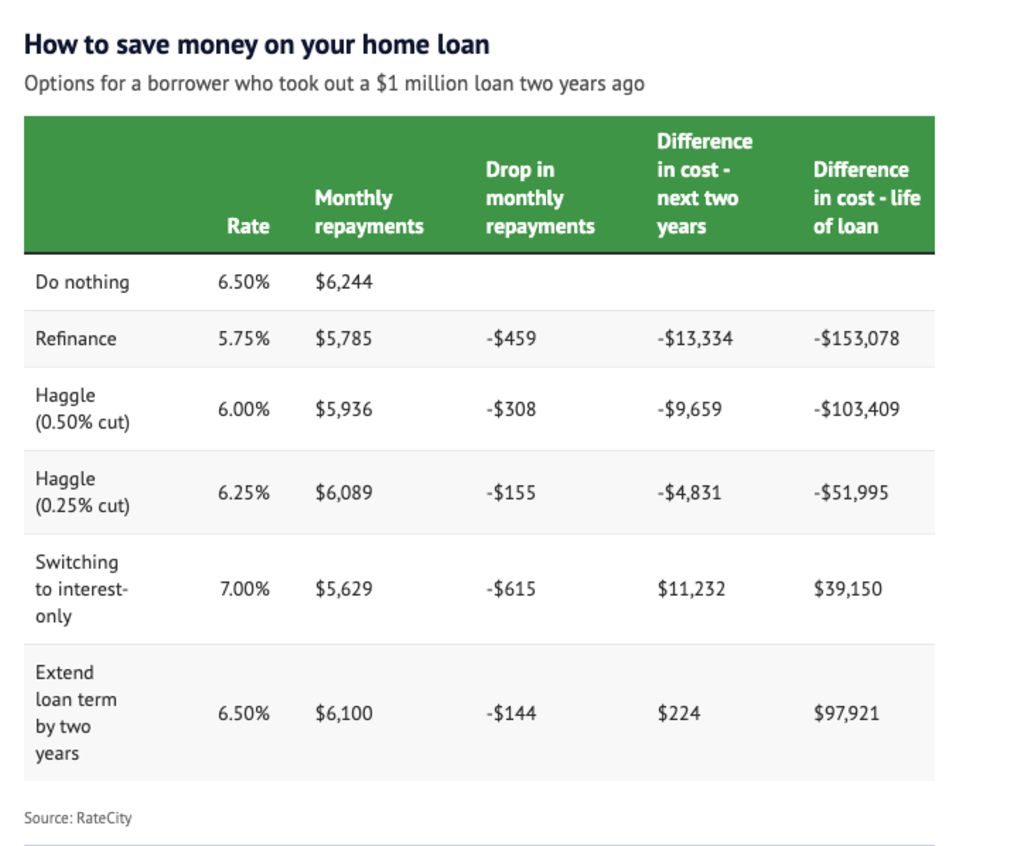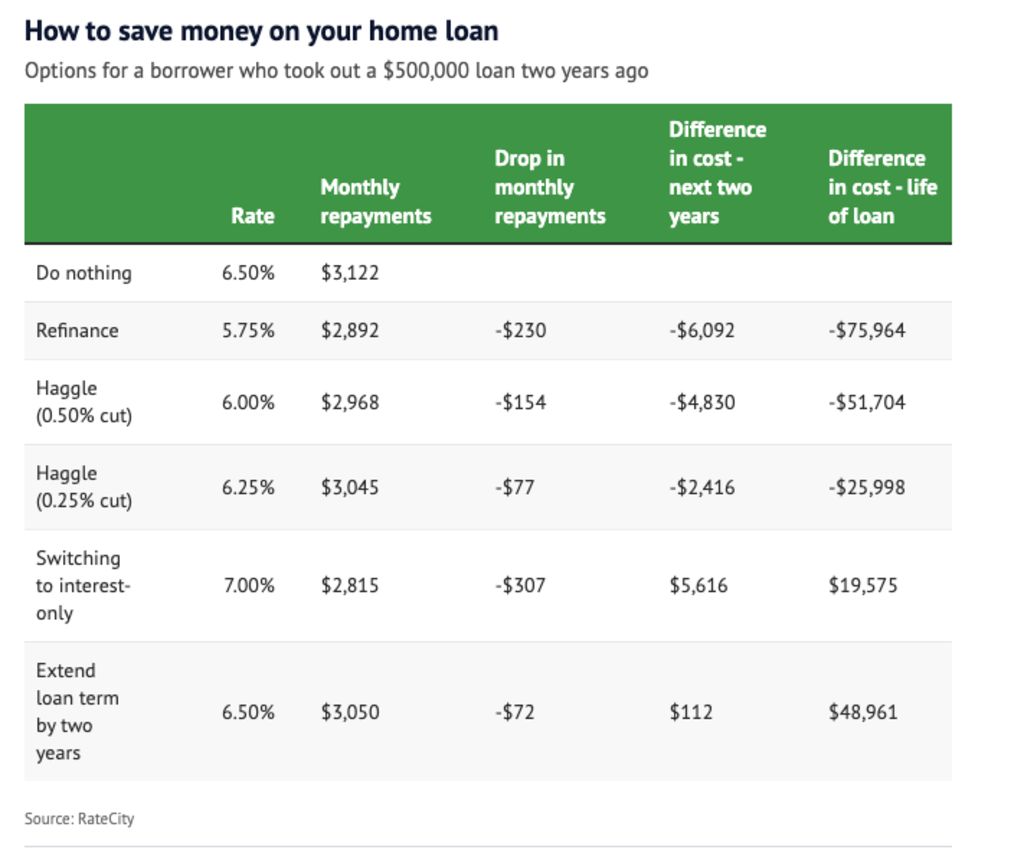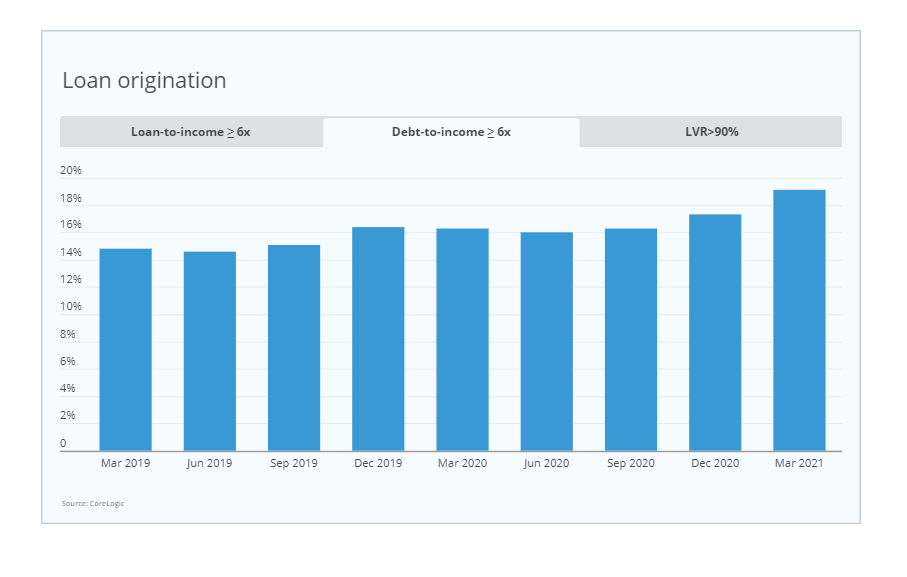Every way to save money on your home loan, ranked from best to last resort
Tawar Razaghi| Domain\ 6 September 2023
Every way to save money on your home loan, ranked from best to last resort (domain.com.au)
Home owners who locked in cheap mortgage rates two years ago and are now rolling off can save cash by renegotiating, but experts warn against options that will cost more in the long term.
While the Reserve Bank of Australia decided to hold the cash rate steady at 4.1 per cent at its meeting on Tuesday after a string of hikes, households who took out a fixed-term mortgage in recent years are facing paying triple the interest rate when their term ends.

Experts say home owners should start by haggling with their bank for a better rate rather than settle on the revert rate they automatically roll onto when their term expires.
They should also shop around for a better deal. These are their two best options to cut their new monthly repayments, and will save money over the life of the loan, unlike more extreme options such as switching to interest-only or extending the loan term.
A homeowner who took out a $1 million principal and interest loan in September 2021 would roll off onto an estimated variable rate of 6.5 per cent and monthly repayments of $6244, RateCity modelling shows.
If they opt to haggle with their bank to get a 0.5 percentage point reduction, as their first port of call, their monthly repayments would drop by $308.

If the same household shops around to refinance to one of the lowest rates in the market at an estimated 5.75 per cent, their monthly repayments would drop by $459.
RateCity’s director of research Sally Tindall said despite past interest rate rises, banks were willing to offer a better deal to customers.
“The banks are very much in the mood to negotiate. They’re sick of losing customers, and they’ve had enough of the refinancing storm, particularly if you’re a flight risk,” Tindall said. “If you can even get a 25 basis point off, something is better than nothing.”

But mortgage holders should not stop there, Tindall warned, and should continue to refinance if there is a better deal available.
“A bank can hand out a rate cut in the space of a day. Get the rate cut when you can, a refinancing application can take up to six weeks,” she said. “Go through the process of finding out if refinancing will save you more money. Banks reserve their sharpest rates for new customers. It’s worth checking.”
Beyond that, mortgage holders still feeling the pinch can switch to interest-only repayments in the short term. It would add an estimated 0.5 percentage points to their rate, but reduce monthly repayments by $615 on the same $1 million loan.
However, it would add an extra $39,150 in interest over the life of the loan if no additional repayments were made.
Canstar group executive of financial services Steve Mickenbecker said mortgage holders should only opt for interest-only repayments as a short-term solution to relieve cash flow problems.
“You’ll be paying a loading of about 0.5 per cent but it does save the cash flow stress and pressure. It’s not a huge saving but it does mean there’s less coming out of the household budget,” Mickenbecker said.
The last resort for struggling mortgage holders would be to extend the life of their loan, experts said.
Under that scenario, mortgage holders who were two years into a $1 million loan and extended back out to 30 years, would see their monthly repayments drop by $144.
But it would add an extra $97,921 in cost over the life of the loan if no additional repayments were made.
“It can significantly reduce the amount of repayment,” Mickenbecker said. “It can make sense but again you’ve got to get back on track in the long term.”
Mortgage broker Chris Foster-Ramsay of Foster-Ramsay Finance said beyond these options, more serious cases of mortgage hardship were treated on a case-by-case basis.
“After that emergency bucket [of interest only and extending your loan term] come the hardship provisions. Banks are not in the business of selling houses. They want to help but at the same time want you to honour your repayments,” Foster-Ramsay said.
Westpac senior economist Matthew Hassan encouraged mortgage holders rolling off fixed rates to contact their banks and start discussions early.
“If people have managed to accumulate prepayments or savings, using that to reduce the principal and refinance would make sense. They would be the big ones,” Hassan said.
“We’re about halfway through this roll off of fixed to floating. My concern from here is the borrowers who are rolling off fixed-rates are facing [a] bigger step up [in repayments].”













 Last month saw bumper returns in the housing market, prompting some to ask whether the government will intervene to cool things down as has recently happened in NZ
Last month saw bumper returns in the housing market, prompting some to ask whether the government will intervene to cool things down as has recently happened in NZ Origin Finance is a
Origin Finance is a